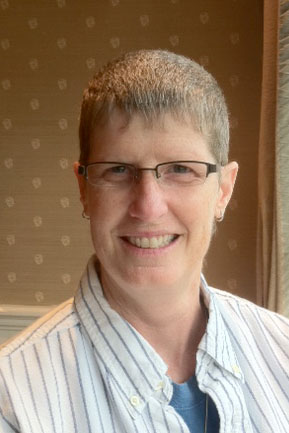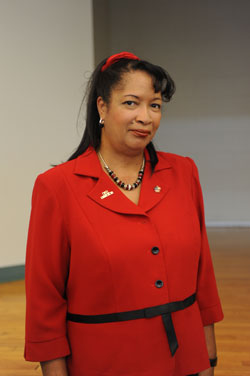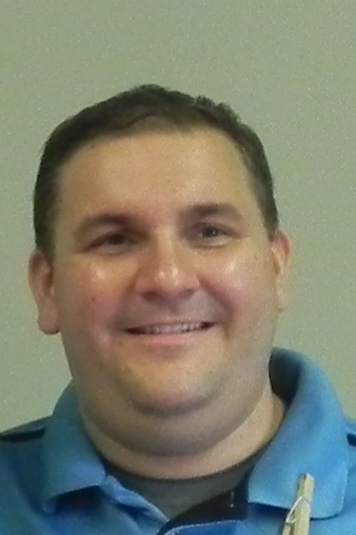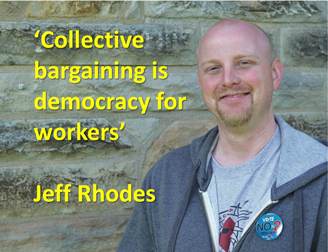State tests could be one of the criteria for both “merit pay” and any salary increases
 I have never wanted to be anything but a teacher. My childhood stuffed animals were regularly lined up, waiting to hear a story or learn about words or numbers. Teaching dance and music lessons in high school helped to pay for college where my dream would come true and I would become a music teacher.
I have never wanted to be anything but a teacher. My childhood stuffed animals were regularly lined up, waiting to hear a story or learn about words or numbers. Teaching dance and music lessons in high school helped to pay for college where my dream would come true and I would become a music teacher.
The urge to help and serve is deeply ingrained within my family. During our family history, we have proudly claimed police officers, firefighters, nurses (including my mother and grandmother) and other public employees. I am married to a teacher (who is the grandson of a teacher), and our older child has now finished his education degree. I couldn’t be prouder of this heritage and legacy, but at the same time, the prospects for my immediate family are nearly terrifying.
If we don’t defeat Issue 2, teachers like my husband and I are in immediate jeopardy of no longer being able to serve the children. We are both music specialists, devoted to educating the whole child and making all our students valuable citizens of the world. Studying music during the school day helps children to synthesize their world, and offers a unique platform for learning skills that are essential for twenty-first century success.
Many of my arts teaching colleagues are seeing their positions eliminated and programs cut for the sake of other curricular areas, which “enjoy” the benefit of being state tested. With Issue 2, those state tests could be one of the criteria for both “merit pay” and any salary increases throughout a teacher’s career. Music teachers, art teachers, physical education teachers, global language teachers, and others will never have the opportunity for pay increases with this method, no matter how many accolades they receive.
Issue 2 forces local school districts to base at least 50 percent of a teachers’ compensation on student test scores, a method that is rejected by education experts and parents alike, because it’s inaccurate, invalid, and doesn’t work. That’s bad policy for students and public education. It’s also the reason I’m voting NO on Issue 2.
—Deborah Graham-Gibson, elementary music specialist, Dublin
Stand up for students and public education
 For three decades, I worked in public education—dedicated to making a difference in the lives of my students. As a 30-year classroom veteran, I know what it takes to help our children achieve and succeed. I also know that if Issue 2 is approved this November, it will have a negative impact on public schools—and will hurt our students.
For three decades, I worked in public education—dedicated to making a difference in the lives of my students. As a 30-year classroom veteran, I know what it takes to help our children achieve and succeed. I also know that if Issue 2 is approved this November, it will have a negative impact on public schools—and will hurt our students.
I began teaching in 1978, when educators didn’t have a voice to advocate on behalf of students and for the resources needed to help them succeed. Issue 2 will surely move public education in Ohio in the wrong direction by stripping educators of their collective bargaining rights and their ability to stand up for students and public education.
While I am retired, I can remember sitting at the bargaining table, fighting for adequate education funding and the things needed to attract the best and brightest to our profession. If we want the best for our children, we have to make sure teachers and education support professionals continue to have a voice in the workplace—one that they can use to demand that all students have access to quality public schools, no matter where they live.
If you care about the future of Ohio and the children who live here, you must vote NO on Issue 2 because it hurts all of us.
—Meg Ulmes, retired educator, Troy
Issue 2 ultimately will hurt my students
Born and raised in Dayton, I became a teacher after working two years in the business world, feeling like my work didn’t make a difference. I entered the teaching professional to contribute to my community and inspire children—just as my teachers had done for me.
Like most teachers, I have educators in my family. This background has allowed me to see positive the effects teachers can have on their students’ lives. I chose to teach special education because I know the difference it makes for students to have at least one person believe in them. My students know that I care because of my actions and my words.
Issue 2 will make it illegal for teachers to bargain for class sizes, and that could lead to student overcrowding, which would hurt many of my students, who benefit from small group instruction and reduced distractions. Issue 2 also could hurt the effectiveness of well-written individualized education plans, if teachers are not given adequate release time to compile data and write them.
The buzz words being used by those attacking teachers are intended to distract us from their real aim—to silence the voices of teachers and all public school employees by gutting their collective bargaining rights. Issue 2 ultimately will hurt my students, and it’s why I am voting NO.
— Dorian Glover, intervention specialist, Dayton
Everyone knows teachers don’t choose their profession for the money
Everyone knows teachers don’t choose their profession for the money—I sure didn’t. I am, like so many other teachers, just passionate about teaching. So, when teachers like me sound the alarm about budget cuts, it’s because we are on the front lines, and we see the real-world effects that decisions by far-away policymakers have on our children—and on their futures.
If we continue to slash funding, we are risking our children’s future and their right to a well-rounded education. With laid off teachers and other educators, class sizes have already gone up, and that means less one-on-one time for kids, especially those students who need it most.
A quality education should emphasize subjects, such as the arts and music, that bolster critical thinking skills and create well-rounded citizens. Sadly, arts and music education are far too often the first on the chopping block during tough economic times. We need real solutions—not more politicians passing the proverbial buck.
Teachers don’t want this generation of students to have diminished opportunities for a better life—no one does. For the first time in decades, parents worry that their children won’t have a better life than they do.
As a proud papa-to-be, I’m about to wear another hat—that of parent—and those statistics are hitting home hard.
Issue 2 is nothing more than a blame game. As any teacher or parent will tell you, passing blame doesn’t do anything to help students. I know we can improve the prospects for our children’s future. I also know what won’t work is fighting each other. That’s why I am voting NO on Issue 2.
—Joseph MacBenn, music arts teacher, Lima, Ohio
Educators are doing great things for students and public education in Ohio
Halfway through my career as an engineer, I decided I needed to do something with a higher purpose, so I became a physics teacher. For the past decade, I have been making a difference in the lives of my students by being a good, innovative teacher.
In addition to my bachelor’s degree and State of Ohio teaching certificate, I hold a MA in Education and a MAT in Physics.
I have been voted “Favorite Teacher,” awarded a BP grant, and worked on Bill Gates/KnowledgeWorks innovative education projects during the seven years I taught in Toledo Public Schools. I am now teaching at Penta Career Center in Perrysburg as the instructor of the new Alternative Energy Career Technical program, Green Energy Management (GEM).
I’m proud to say that of the first GEM graduating class of 2011, all have gone on to post-secondary education/training. The GEM program was featured on the Ohio Department of Education web site, and I was a presenter at the 2011 Ohio Education Economic Summit in Columbus. I am a Sustainable Energy Education and Training (SEET) educator currently developing curriculum for various alternative energy careers for the National Science Foundation.
Educators are doing great things for students and public education in Ohio, yet some politicians who have never stepped foot in my classroom, or any classroom since they were students themselves, want to implement a one-size-fits-all teaching approach. I have worked hard to develop one of the first programs in the state to prepare our youth for the future, but now Columbus lawmakers—who don’t have my students’ best interests in mind—are working to dismantle that progress.
I have worked more than 25 years in industry as both a union and non-union employee, but I never felt I needed union protection until I entered education.
I have never before felt such an “us” versus “them” environment, which is not conducive to teaching or learning. And now they want to silence the voices of teachers and educators with Issue 2.
This November, I’m voting NO on Issue 2 because it will hurt all of us.
—Vicki Miller, career technical instructor, Perrysburg
Issue 2 unfairly creates two sets of rules

For more than 30 years, I have been teaching students with disabilities in an urban school district. Teaching kindergarten, in a tough school—to students with disabilities—is a difficult job, but I love it. The growth I witness in my students with disabilities, including developmental delays, autism, and traumatic brain injury, are worth all my efforts every day.
Teaching is a career, not a job. I know that not everyone can do what I do. That’s why we need to attract the best candidates to the profession and encourage good teachers to stay in the classroom. I could have had a much more lucrative career had I chosen to work in the for-profit sector, but I choose to spend my life serving children.
Somehow in the last year, this has become a-less-than-noble profession. Educators are being asked to do more with less while being blamed for a budget crisis we didn’t create.
The politics of blaming hardworking teachers for Ohio’s financial woes already has had a detrimental effect on those in the profession. Wonderful young teachers are talking about leaving. To add insult to injury, while public employees like me made considerable financial sacrifices to help Ohio balance its budget, politicians in Columbus doled out millions of dollars in tax breaks to their corporate campaign contributors.
Issue 2 unfairly creates two sets of rules—those for hard-working Ohioans like me and those for politicians and their friends with Columbus connections. That’s wrong and that’s why I’m voting NO on Issue 2 this November.
— Karen Andermills, special education kindergarten teacher, Columbus
Save
Issue 2 only continues budget cuts to our school district
People always ask me why I chose to be a teacher. I decided on this profession because I wanted to inspire students and prove to them that they can learn, despite their difficulties—just like I did. I became a teacher to show my students that quality education is the one thing that no one will ever be able to take away from them.
Now my students and I are getting a painful lesson in life. Some people in positions of power can take away your rights, no matter how unfair, unsafe, or how badly it hurts.

Because of Senate Bill 5, which is now Issue 2 on the November ballot, some people are telling me that I’m the enemy and it’s my turn to help balance the budget. They claim this economic situation is my fault. They say I’m greedy for caring—and fighting—for my students. They don’t understand the facts.
Through the collective bargaining process, Pickerington teachers recently have made many sacrifices. Teachers, staff and administrators have made concessions in salary and insurance. Class sizes have increased, while our professional development budgets have decreased. Due to the failure of a levy last August, 130 teachers and staff were laid off. Our programs have been drastically altered for this school year—resulting in reduced wrap-around services, electives and other course offerings for students.
Issue 2 only continues budget cuts to our school district, leaving us in even more dire financial straights. It baffles me how it’s fair to blame teachers, school employees and other public workers for the budget mess we didn’t cause, while politicians create loopholes to exempt themselves. That’s not fair. And that’s why I am voting NO on Issue 2.
—Erin Salzer, high school special education teacher, Pickerington
Ohioans have the chance to come together on Election Day
For more than 20 years, I have been teaching chemistry and promoting science education to a generation of young minds. I did not come into the world of public education expecting to get rich. In fact, I left a lucrative scientific research job in the private sector industry to enter the teaching profession.
I wanted the opportunity to teach students who could be the next Isaac Newton, Albert Einstein or Louis Pasteur. I wanted to make a difference and contribute to my community. I wanted to be a teacher.

During the last several years, Pickerington, like many Ohio communities—has struggled to secure funding in our own growing area. We have retained our optimism and dedication, despite the unwillingness of some to support the same kind of quality public education and services they received when they were younger.
Now some elected officials are carrying out a systematic attack against teachers—like me—who only want what’s best for their students.
It’s sad and it’s a tragedy, but it is not a coincidence that Issue 2 silences the voices of teachers and other educators. Politicians don’t want to hear us advocating for our students or for good schools that include smaller class sizes, up-to-date textbooks, well-equipped libraries and modern technology. These politicians want to be free to make up their own rules, while ignoring the advice of the people who work in schools and classrooms everyday. As teachers, we know what students need to succeed in school and in life.
Ohioans have the chance to come together on Election Day. Voting NO on Issue 2, we’ll send a clear message to self-serving politicians who don’t have the best interest of our students in mind.
—Carla Fultz, science teacher, Pickerington
Collective bargaining is democracy for educators!
Debate is good—it often yields innovation. Debate is the cornerstone of an educated modern society. Collective bargaining is just that—a debate. Collective bargaining allows educators to have a discussion about what we need to help ensure that our students are prepared to succeed.
And what happens in a debate? Both sides come to a table, sit down and present their arguments. In the end, each side gets a little of what they want, neither side controls the procedure, but both sides get a voice in the outcome. That is truly what happens in collective bargaining.
Unions don’t come to the table and receive all that they want. Countless hours are spent debating the merits of a particular contract provision. In the end, BOTH sides agree to terms. But the process doesn’t stop there either. Contracts are then voted on by BOTH sides. Sometimes these contracts go in front of mayors, city councils and school boards for approval. Collectively, we get a chance to voice our opinions in the process.
I’m entering my ninth year of teaching. Technical education is considered a “special subject,” so my program falls outside the provisions of our local union contract—meaning it could be cut at any time. Even though I’m not directly impacted by collective bargaining, I know it’s wrong to strip the collective bargaining rights of teachers and other educators.
Collective bargaining is democracy for the workers. Taking away that right is wrong. It’s the reason Issue 2 is unfair, and why I’m voting against it.
—Jeff Rhodes, technical education teacher, North Royalton
Unsafe for Special Needs Students
 My whole life has been dedicated to making a difference in the lives of those with developmental, emotional and/or physical challenges. For 25 years, I have taught students who not only have been diagnosed as having a learning disability, but who also have major medical needs. Larger class sizes and cut backs on supplemental services have negative consequences for students with special needs.
My whole life has been dedicated to making a difference in the lives of those with developmental, emotional and/or physical challenges. For 25 years, I have taught students who not only have been diagnosed as having a learning disability, but who also have major medical needs. Larger class sizes and cut backs on supplemental services have negative consequences for students with special needs.
As a special education teacher, parents not only trust me to educate their child; they also want me to make sure their child is safe. It’s a huge responsibility, which is why I’m glad I don’t have to do it alone-I’m part of a team of teachers and education support professionals, like teacher’s aides, school nurses and other employees. We’re a family that is working together to do what’s best for special needs students.
For the first time in nearly 20 years, my school district laid off staff. These cuts have hurt my students because some of the educational aides lost their jobs. I depend heavily on my aides to help me maintain a safe learning environment for my students.
My colleagues and I have been asked to make significant sacrifices, yet Columbus politicians have handed out millions of dollars in tax breaks to their corporate campaign contributors. Slashing funding to schools, especially special education programs, resulting in less staff to take care of our most vulnerable students, is not just wrong—it could result in unsafe conditions.
Issue 2 will hurt our students, not only their education, but their safety too. For me, that’s just too much to risk, which is why I am voting NO on Issue 2.
—Gretchen Washington, special education teacher, Springdale





